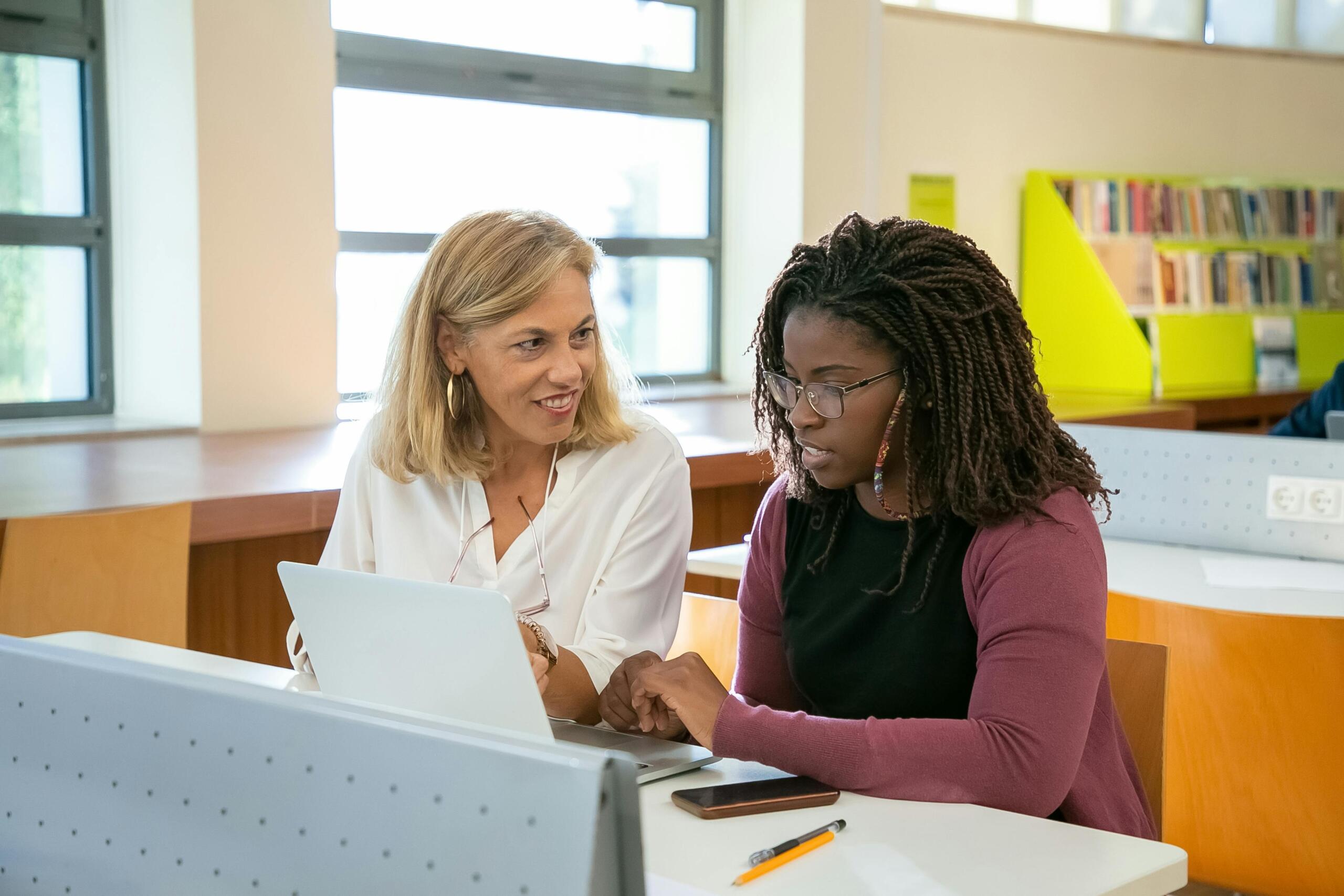The best tutors adapt to the student, not the other way around.
Anonymous
Walk into any library or coffee shop during exam season and you will see the same picture. Some learners are buried in their textbooks, others are comparing notes with friends, and a few are meeting with tutors. The truth is, when it comes to support outside the classroom, there is no single formula that works for everyone. Some thrive in group settings, while others need the full focus of a private tutor. Parents often ask which is best, group or private tutoring, but in reality, the answer depends on personality, budget, and learning style.

The Case for a Personalised Approach
One of the strongest arguments for individual tutoring is the attention it gives a learner. In a group, even a small one, a child might hesitate to ask what feels like a “silly” question, but with a personal tutor, there is no such pressure. In addition, in a personalised set up, every lesson can move at the learner’s pace and if that means revisiting algebraic fractions or a tricky poetry analysis until it finally clicks, then that is what happens.
This style of personalised tutoring is especially helpful for learners who are falling behind or struggling with confidence. Imagine a Grade 10 learner at a busy school in Sandton who freezes during mathematics tests: in a large classroom, the teacher has thirty other students to think about, but in a one-on-one situation the learner can take time to ask, pause, and try again without fear of embarrassment. It’s been proven over and over, through weeks of this this practice, confidence grows, and results follow.

One-on-one tutoring also works well for learners who have specific goals, such as preparing for Matric finals or writing international entrance exams. These learners often need targeted strategies rather than general revision. Here, a private tutor can show the student how to make a study plan for exams so that every session contributes directly to the bigger goal.
Group Tutoring and the Power of Peers
Group sessions bring a different kind of energy. For some learners, especially those who thrive in discussion, the presence of peers can spark motivation. Think of a Grade 11 science group at a community hall in Soweto. As one learner explains Newton’s laws in their own words, others nod in sudden understanding. Someone else brings a trick for memorising formulas. In this setting, learning is shared and reinforced in a way that is harder to achieve alone. When it comes to making a study plan for exams in a group like this, even this effort can be shared.
Cost is another major factor. Group tutoring often comes at a fraction of the cost of private tutoring, which makes it more accessible to families. This means learners can attend sessions more frequently without breaking the household budget. In areas where resources are stretched, like certain township schools or places like rural KwaZulu-Natal, the affordability of group lessons makes them a practical choice.
Of course, group learning does have its limits. A learner who is shy or significantly behind may feel overwhelmed by faster peers. In these cases, even a lively group cannot replace the patience and tailored support of a private tutor.

Choosing the Right Fit for Each Situation
So, which approach is better? The answer depends on the learner’s unique needs. For a highly motivated student at Parktown Boys’ High who just wants to know how to make a study plan for exams or focus on extra exam practice, group sessions may be enough. The shared plan, discussion and problem-solving could sharpen their skills without requiring intensive personal attention.
On the other hand, a learner at a private school in Pretoria who struggles with reading comprehension might benefit far more from individual tutoring. Here, lessons can be adapted to their pace and learning style, while weaknesses and strengths are also identified and sharpened. For instance, the private tutor can introduce specific reading strategies, set short exercises, and provide steady encouragement that may not be possible in a group.
Parents should also consider practical factors. If the learner’s schedule is already crowded with sports and cultural activities, the flexibility of one-on-one tutoring might be better. Sessions can be arranged around matches and rehearsals, whereas group tutoring usually has fixed times.

Another consideration is technology. More parents are turning to online tutoring companies in South Africa for convenience and access. Learners in rural areas, where there are fewer local tutors, can now connect to skilled teachers in Cape Town, Durban, or Johannesburg without leaving home. Online platforms usually also offer both private tutoring and group sessions, which gives families more choice.
Blended Tutoring: A Middle Path
An increasingly popular approach is blending group and individual support. For example, a learner might attend weekly group lessons in mathematics for general revision, then add one-on-one tutoring when needing help with how to make a study plan for exams.
This blend works well because it combines the strengths of both methods. Group lessons provide peer motivation and affordability, while private tutoring delivers targeted attention. A learner at Wits University preparing for first-year accounting might follow this model. They could join a group session for general practice with peers, then schedule one-on-one tutoring for detailed help with problem areas.
Online tutoring companies in South Africa often promote this blended style. Families can book group webinars for shared learning, then arrange personal tutor check-ins for customised guidance. Using online tools like this means that even learners in smaller towns like Rustenburg or Polokwane can benefit from this flexible setup. If all of this sounds overwhelming, the guidance of a private tutor from a platform like Superprof brings it all together seamlessly.
Advice for Parents and Learners
For parents weighing the options, the first step is to observe the learner’s personality and study habits. Is your child competitive and talkative, thriving in group discussions? Or do they need calm, focused explanations that only one-on-one tutoring can provide?
Next, think about the goals. If the aim is to improve general understanding across subjects, group lessons may be sufficient. If the aim is to close specific gaps or prepare for high-stakes finals, individual tutoring might be the wiser investment.
For parents weighing the options, the first step is to observe the learner’s personality and study habits. Is your child competitive and talkative, thriving in group discussions? Or do they need calm, focused explanations that only one-on-one tutoring can provide?
Budget also matters. While every parent wants the best for their child, it is important to choose an option that can be sustained over time. A short burst of one-on-one attention might work wonders before exams, while ongoing group sessions could support consistent progress during the year.
Finally, remember that a tutoring arrangement need not be rigid. As learners grow and their needs change, the balance can shift. A learner who begins with group lessons in Grade 9 might benefit from one-on-one tutoring by Grade 12, especially when university entrance exams are on the horizon.
Parents can also play a guiding role in structuring learning outside sessions. Encouraging a learner to use methods like how to make a study plan for exams can ensure that the progress made with tutors continues at home. This reinforces accountability and helps learners build independence.
The Bigger Picture

In the end, the choice between group and private tutoring is not about declaring that one method is superior to the other. It is about matching the right support to the right learner at the right time. In South Africa, where schools vary widely in resources and class sizes, the flexibility of both models is a gift. A learner at a well-resourced school in Rosebank may only need a little extra group practice, while a learner in a rural Free State school might find life-changing progress through private tutoring online.
Today, with the explosive growth of online tutoring companies in South Africa, the options are broader than ever. Families can now experiment with both styles, switch between them, or even combine them as needed. What matters most is not the format, but the confidence and competence a learner gains.
For parents, the key is to make sure that the rapport between student and tutor is good as this can make all the difference. Also, when they stay involved, ask questions, and listen to feedback from both their children and tutors, progress is easy to monitor.
In a country where education is the pathway to opportunity, choosing the right kind of tutoring is an important decision. Whether through the steady encouragement of an in-person or online private teaching, the collaborative spirit of a group, or the flexible options offered by online tutoring companies in South Africa, the goal remains the same: to help learners approach their studies with confidence, structure, and resilience.
Résumer avec l'IA :











